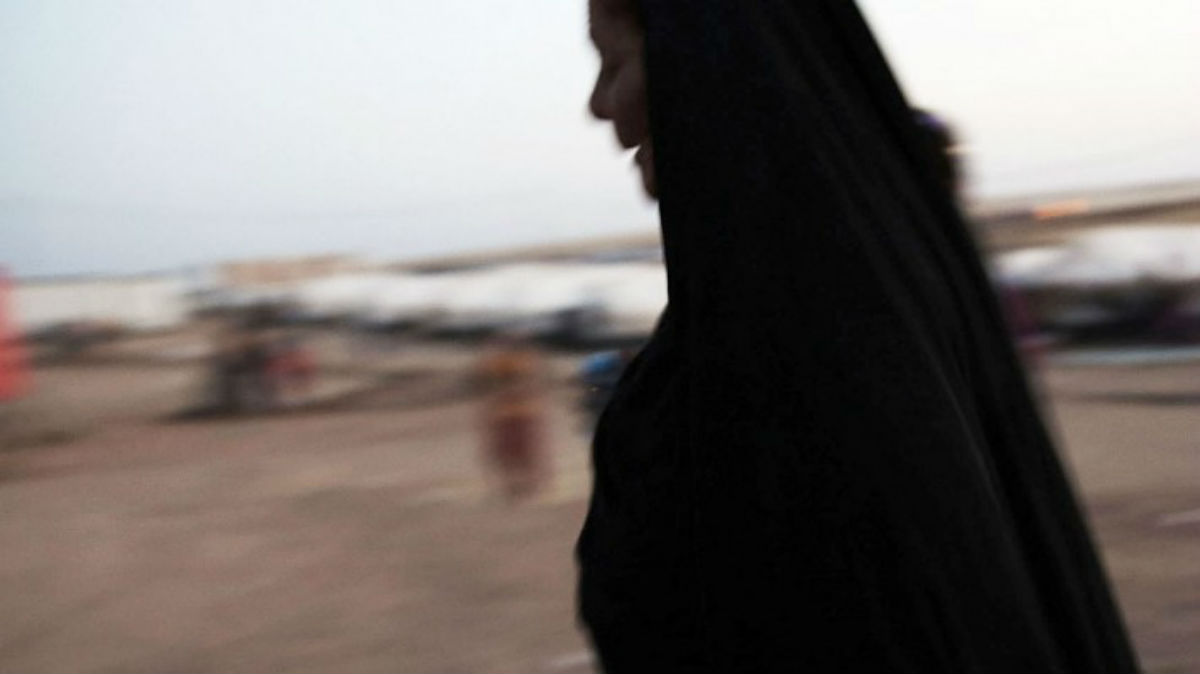Islamic State using women to create an 'unborn army'
As many as 50 children from the UK are also said to be growing up in the so-called caliphate

A free daily email with the biggest news stories of the day – and the best features from TheWeek.com
You are now subscribed
Your newsletter sign-up was successful
Thousands of women are being used by Islamic State to breed a new generation of child soldiers, according to a report published to coincide with International Women's Day.
More than 31,000 women living in IS-controlled areas are pregnant with the children of militants, says the United Nations-endorsed report, released yesterday by the counter-extremism group Quilliam.
It also found that as many as 50 children from the UK are growing up in the so-called caliphate. The boys attend jihadist training, which includes shooting, weaponry and martial arts, while the girls are confined to the home and taught to look after husbands.
The Week
Escape your echo chamber. Get the facts behind the news, plus analysis from multiple perspectives.

Sign up for The Week's Free Newsletters
From our morning news briefing to a weekly Good News Newsletter, get the best of The Week delivered directly to your inbox.
From our morning news briefing to a weekly Good News Newsletter, get the best of The Week delivered directly to your inbox.
"Children's prolonged exposure and desensitisation to violence affects their physical and psychological well-being, both in the short term and in the long term," says the report. "Children assist in meeting the present needs of the 'caliphate' and can continue to propagate the state's existence and expansion once they grow up."
IS regards children as "better and more lethal fighters than adults", says The Independent. "Rather than being converted into radical ideologies, they are a 'blank slate' which allows them to have extreme values indoctrinated from birth."
Rape and sexual slavery are used as weapons of war by IS militants and the UN's envoy on sexual violence, Zainab Bangura, says abducted women and girls are openly sold in slave markets for as little as a pack of cigarettes.
If they are not sold, the girls, who are often from the Yazidi minority, are forced to marry militants.
A free daily email with the biggest news stories of the day – and the best features from TheWeek.com
Amnesty International estimates more than 200 girls have managed to escape, but hundreds, "possibly thousands," remain.
In 2014, so-called jihadi brides published a guide to life for women under IS rule that laid out a strict dress code, said girls as young as nine can get married and stated that women should only leave the house in exceptional circumstances.
-
 Corruption: The spy sheikh and the president
Corruption: The spy sheikh and the presidentFeature Trump is at the center of another scandal
-
 Putin’s shadow war
Putin’s shadow warFeature The Kremlin is waging a campaign of sabotage and subversion against Ukraine’s allies in the West
-
 Media: Why did Bezos gut ‘The Washington Post’?
Media: Why did Bezos gut ‘The Washington Post’?Feature Possibilities include to curry favor with Trump or to try to end financial losses
-
 Epstein files topple law CEO, roil UK government
Epstein files topple law CEO, roil UK governmentSpeed Read Peter Mandelson, Britain’s former ambassador to the US, is caught up in the scandal
-
 Iran and US prepare to meet after skirmishes
Iran and US prepare to meet after skirmishesSpeed Read The incident comes amid heightened tensions in the Middle East
-
 Israel retrieves final hostage’s body from Gaza
Israel retrieves final hostage’s body from GazaSpeed Read The 24-year-old police officer was killed during the initial Hamas attack
-
 China’s Xi targets top general in growing purge
China’s Xi targets top general in growing purgeSpeed Read Zhang Youxia is being investigated over ‘grave violations’ of the law
-
 Panama and Canada are negotiating over a crucial copper mine
Panama and Canada are negotiating over a crucial copper mineIn the Spotlight Panama is set to make a final decision on the mine this summer
-
 Why Greenland’s natural resources are nearly impossible to mine
Why Greenland’s natural resources are nearly impossible to mineThe Explainer The country’s natural landscape makes the task extremely difficult
-
 Iran cuts internet as protests escalate
Iran cuts internet as protests escalateSpeed Reada Government buildings across the country have been set on fire
-
 US nabs ‘shadow’ tanker claimed by Russia
US nabs ‘shadow’ tanker claimed by RussiaSpeed Read The ship was one of two vessels seized by the US military